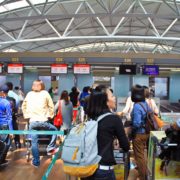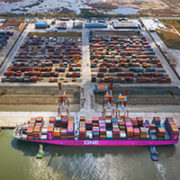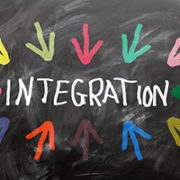
About Jayant Menon
Jayant Menon is a visiting senior fellow at the ISEAS–Yusof Ishak Institute, Singapore.Can closing borders shut out new COVID-19 strains?

In fighting the coronavirus disease (COVID-19) pandemic and, in particular, the new strains that are emerging, many countries have adopted the dual approach of closing borders and increasing domestic surveillance. This might be overkill. In fact, the latter might suffice.
Toward an ASEAN COVID-19 travel balloon

While financial markets have responded strongly to the emergency-use authorization of various coronavirus disease (COVID-19) vaccines in several countries, the economic impacts will take much longer to materialize. One reason for this is that vaccinating 60% or more of populations to achieve herd immunity will take time. Reaching herd immunity is critical given the possibility that those vaccinated may still be infectious, despite being immune to the disease.
How should ASEAN and ASEAN+3 respond to the COVID-19 crisis?

The Association of Southeast Asian Nations (ASEAN) and its bigger counterpart ASEAN+3, comprising the 10 ASEAN members and the People’s Republic of China, Japan, and the Republic of Korea (ROK), have been slow to respond to the COVID-19 pandemic. While they have been strenuously ramping up their efforts, more needs to be done, and quickly. There are many things they can do immediately, such as employing their machinery to increase consultation and cooperation to curb contagion—both medical and economic—and limit beggar-thy-neighbor policies.
The upgraded ASEAN-People’s Republic of China Free Trade Agreement could matter, big time

In 2015, the Association of Southeast Asian Nations (ASEAN) and the People’s Republic of China (PRC) signed an Upgrade Protocol to improve the original Framework Agreement for the ASEAN-People’s Republic of China Free Trade Area (ACFTA) as well as their Agreement on Trade in Goods, Services, and Investment. The Upgrade Protocol entered into force in July 2016, and implementation will start from August 2019.
Malaysia’s affirmative action should be based on need

When Malaysians came out in numbers to replace the government that had ruled since Independence, they signaled a clear desire for change. But what kind of mandate does the new government have? Pakatan Harapan’s election campaign included a host of promises, most of which are now being pursued without much controversy.
“Monsters” in the house? What to do about Malaysia’s government-linked companies

About a month before Malaysia’s parliamentary election in May 2018, then-opposition leader Mahathir Mohamad raised concerns over the role that government-linked companies (GLCs) were playing in the economy, being “huge and rich” enough to be considered “monsters”. Data support his description—GLCs account for about half of the benchmark Kuala Lumpur Composite Index, and they constitute seven out of the top-10 listed firms in 2018. They are present in almost every sector, sometimes in a towering way. Globally, Malaysia ranks fifth-highest in terms of GLC influence on the economy.
Will 2025 be the final deadline for the ASEAN Economic Community?

The Association of Southeast Asian Nations (ASEAN) fell short of its target of realizing the ASEAN Economic Community (AEC) by the end of 2015, deferring 105 of its 506 measures. A successor blueprint called the AEC Blueprint 2025, which lays out the work for ASEAN economic integration in the next 10 years, was adopted at the 27th ASEAN Summit in November 2015.
What next for the Trans-Pacific Partnership?

After more than 5 years of numerous missed self-imposed deadlines, trade ministers from the 12 participating Asia-Pacific countries finally concluded the Trans-Pacific Partnership (TPP) in Atlanta on 5 October 2015. The public fanfare accompanying the announcement led many to believe the agreement would soon come into force. Yet there is a lot that needs to be done before that happens, and there is no guarantee that it will. In this article, I examine two issues: (i) what concluding the TPP means in terms of what was achieved and what remains to be done; and (ii) what the TPP is likely to look like, given what we now know following the negotiations.


Search
Subscribe / Connect to Asia Pathways
Subjects
- Agriculture and natural resources
- Blog
- Capacity development
- Climate change
- Economics
- Education
- Energy
- Environment
- Finance sector development
- Gender
- Governance and public sector management
- Health
- Industry and trade
- Information and Communications Technology
- Infrastructure
- Miscellaneous
- Population
- Poverty
- Private sector development
- Regional cooperation and integration
- Sanitation
- Social development and protection
- Transport
- Uncategorized
- Urban development
- Video Blog
- Water
Recent Posts
- Artificial intelligence: A new driver for inclusive growth and development?
- Increasing trust in cross-border e-commerce and artificial intelligence
- Enhancing access to maternal and newborn healthcare in developing Asia
- Can electric vehicles lead the way to a sustainable future?
- Mitigating climate-related sovereign risk to accelerate action on the climate emergency




Recent Comments